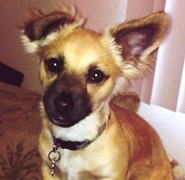
Domestic Cats Face Dangers From Urban Coyotes
The US National Park Service recently completed a two-year study on the diet of coyotes in the Los Angeles, California area. The results indicate that our cats could be at greater risk for being eaten by coyotes than we thought.
Researchers analyzed over 3,200 samples of coyote poop (called scat) from Los Angeles and surrounding communities. They also compared the urban coyote samples with samples from more suburban areas that are closer to their natural habitat.
They found that the diet of urban coyotes was influenced by living so close to humans. The coyotes routinely ate human food scraps and commercial pet food. They also ate a lot of ornamental fruits commonly found in our gardens.
Unfortunately, free-roaming cats–and even cats allowed outside but restricted to enclosed yards–are also on the menu for urban coyotes. Domestic cat remains were found in 20% of the scat, the third most common component after human and pet foods and ornamental fruits.
The scat of coyotes from more rural areas had only 4% of domestic cat and it also had less human and pet food and ornamental fruit remains. Rabbits were the most common part of the non-urban coyotes’ diet.
Pet owners in areas with high numbers of coyotes should always keep their cats indoors. Small dogs can also be at risk, so it’s important to walk your dog on leash and never leave your dog in the yard unattended.
Make sure your trash can lids are secure and avoid leaving bowls of pet food outside as well. Experts also recommend avoiding bird feeders and ornamental fruit trees to discourage coyote visits to your back yard.
You can find a lot of helpful information on keeping your pets safe from coyotes on the Urban Coyote Initiative website HERE.



